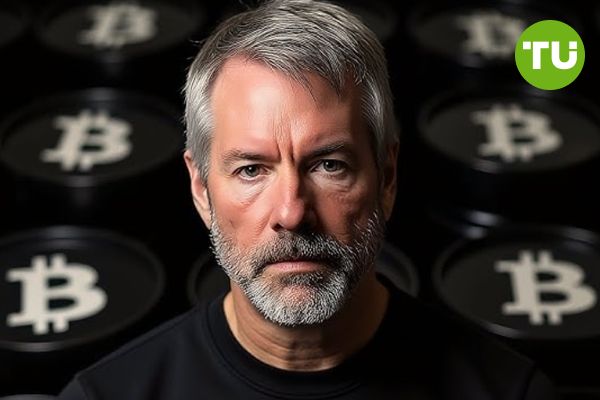Michael Saylor responds to criticism from Vitalik Buterin
 Michael Saylor responds to criticism from Vitalik Buterin
Michael Saylor responds to criticism from Vitalik Buterin
Michael Saylor, the outspoken Bitcoin advocate and co-founder of MicroStrategy, has responded to recent criticism from Ethereum co-founder Vitalik Buterin, sparking another debate in the cryptocurrency community. The exchange between the two prominent figures centers on the differing approaches to the use and storage of digital assets, with Saylor doubling down on his endorsement of self-custody as the most secure form of holding cryptocurrency.
In comments that quickly gained attention, Buterin criticized the concentration of cryptocurrency holdings among institutional players, specifically pointing out that figures like Saylor and large corporations are monopolizing the crypto space. Buterin suggested that this goes against the decentralized ethos that Bitcoin and other cryptocurrencies were founded upon.
Saylor’s response, issued publicly, reaffirmed his stance on the importance of self-custody, a method where individuals maintain control of their digital assets rather than entrusting them to third parties such as exchanges. He contended that the ability to hold one’s own assets is a cornerstone of financial freedom in the crypto world.
"I support self-custody for those willing & able, the right to self-custody for all, and freedom to choose the form of custody & custodian for individuals & institutions globally," Saylor noted.
Loading...
Buterin’s criticism was rooted in his broader argument that the crypto industry should avoid falling into patterns of centralization and monopolistic behavior. He has previously argued for solutions that promote more equitable access to decentralized financial tools, which he views as essential for the long-term health of the crypto ecosystem.
Saylor, however, has become one of the most visible proponents of Bitcoin as a store of value, positioning it as a hedge against inflation and a secure digital asset for institutions and individuals alike. His response to Buterin’s concerns did not deviate from his long-held belief in Bitcoin’s superiority over other cryptocurrencies and the importance of sovereignty in holding digital assets.
This public exchange has reignited discussions within the cryptocurrency community about the best ways to balance decentralization with the increasing influence of institutional investors. The debate touches on deeper philosophical questions about the future of Bitcoin, Ethereum, and the broader crypto market, with questions about governance, security, and financial autonomy at the heart of the issue.
As the crypto space continues to evolve, the differing viewpoints from major influencers like Saylor and Buterin highlight the complexities of achieving decentralization while fostering large-scale adoption.
Read also: Denmark plans tax on unrealized crypto gains













































































































































